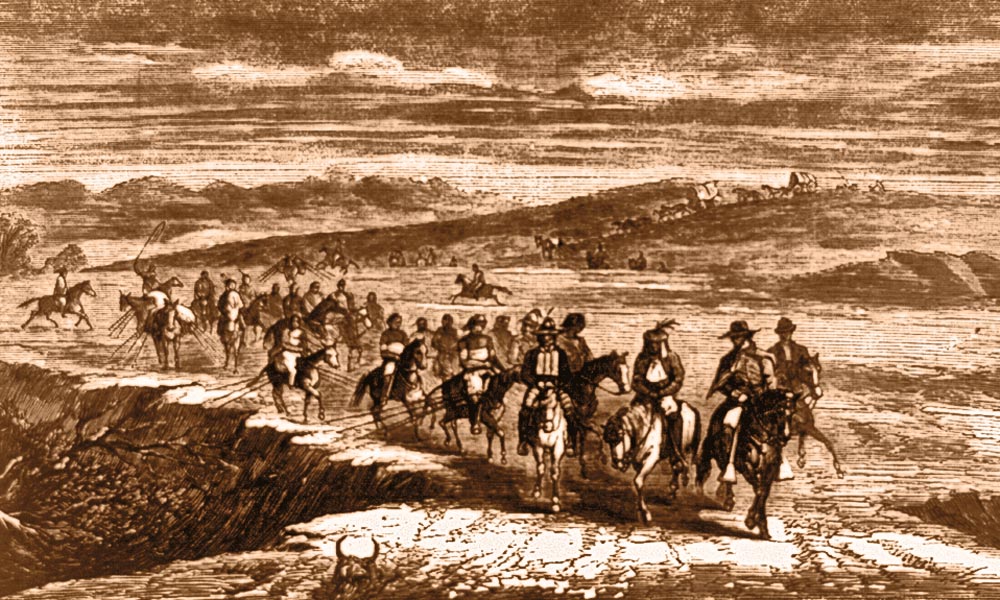
Did any Indian tribes break treaties the way the U.S. government did?
Walter Reed
Chandler, Arizona
Yes. And the most warlike tribes were the most likely to break their promises.
Apache leader Mangas Coloradas agreed in July 1852 not to raid into Mexico; he did just that, as early as September.
In 1858, the Dakota raided the Chippewa immediately after signing a peace treaty.
In 1861, the Cheyenne and Arapaho signed a treaty at Fort Wise in Colorado Territory and never complied with one provision of the peace agreement.

– Courtesy Library of Congress –
One month after Comanches and Kiowas signed the Medicine Lodge Treaty in 1867, they were raiding in Texas.
A major problem with treaties: non-signers didn’t feel obligated to honor something they didn’t personally agree to. Often, a chief represented only one band of a particular tribe, not the entire tribe. Settlers usually didn’t understand that.
Marshall Trimble is Arizona’s official historian and vice president of the Wild West History Association. His latest book is Arizona Outlaws and Lawmen; The History Press, 2015. If you have a question, e-mail him at marshall.trimble@scottsdalecc.edu





